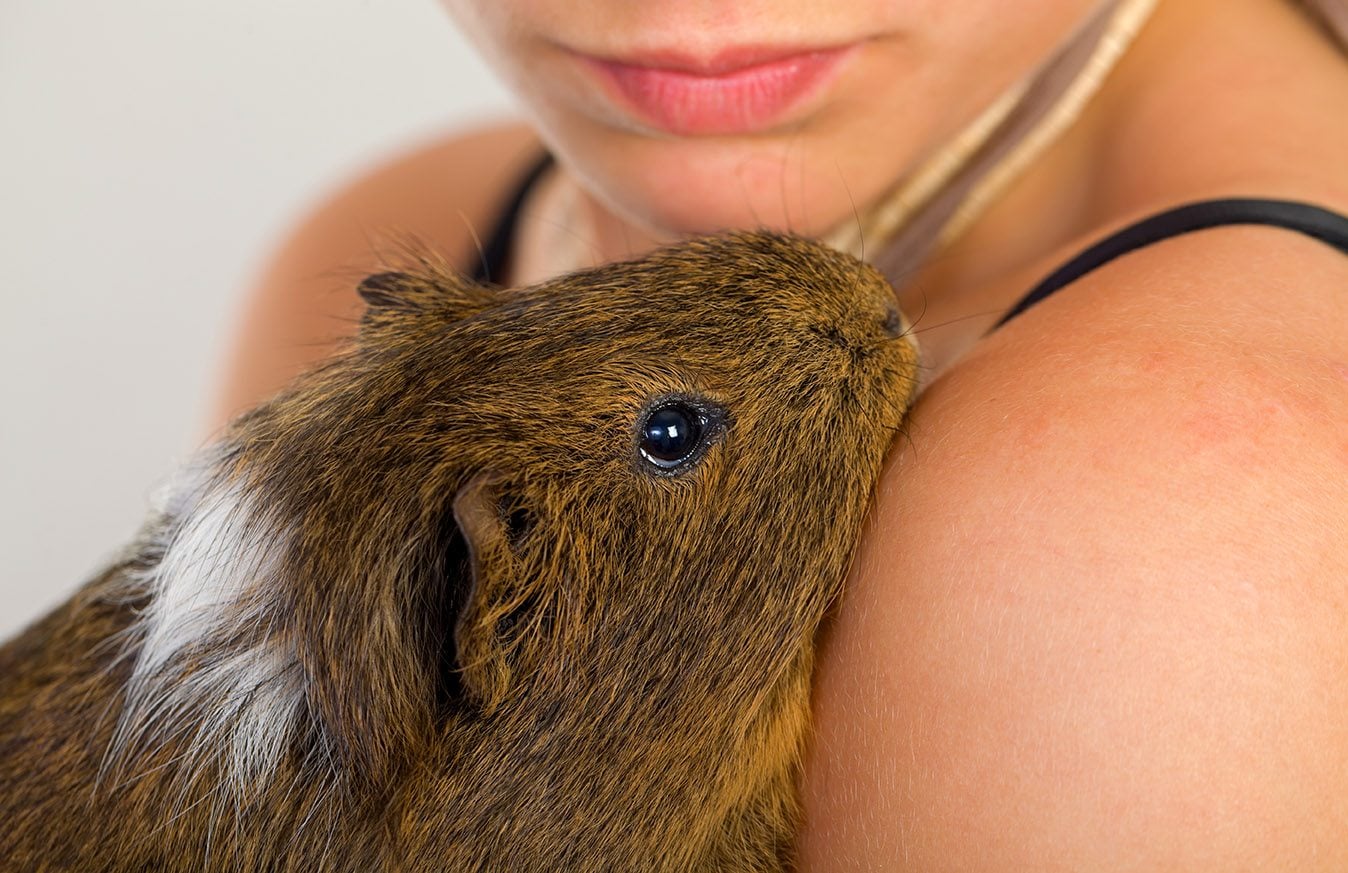VET APPROVED

The information is current and up-to-date in accordance with the latest veterinarian research.
Learn more »Click to Skip Ahead
Humans love to laugh, and many of us enjoy hearing our pet dogs make funny noises. But can dogs really laugh? The answer is kind of, but in a very different way from humans! Dogs have the capability to express joy and happiness through play-panting, which is often referred to as dog laughter. In this article, we’ll explore how dogs laugh and the potential reasons behind it.

The Different Types of Dog Laughter
Dogs laugh, but it doesn’t sound anything like our laughter. Instead, it’s a short panting noise. gs produce this sound when they are playing or when they are enjoying physical contact with humans, such as being petted.
While the sound of human laughter is produced by vocalization, dogs produce their laughter-like panting solely through breath control.
So why do dogs do it? The research into dog laughter is fairly new, and there are still a lot of questions that need to be answered.2 It’s likely that the behavior has evolved as a way to communicate positive emotions and foster social bonding. After all, laughter is known to release endorphins and reduce stress levels in humans, and it’s likely that the same is true for our furry friends. Who knows, maybe your dog is laughing at one of your jokes!
How to Tell If Your Dog Is Laughing

Dogs generally communicate through body language and vocalizations, but it can be tough to know exactly what they’re trying to say. Fortunately, there are a few telltale signs that your dog is laughing. One is a relaxed body posture with an open mouth and panting tongue. You may also notice your dog’s tail wagging back and forth or their ears perked up and forward.
And, of course, you’ll likely hear a distinctive sound coming from your dog – something like a soft “hhuh” or “hhah”. If you see all of these signs, then there’s a good chance your furry friend is laughing away. Of course, every dog is different, so it’s always best to observe your own pet to see what behaviors they display when they’re happy.
What Do Scientists Say About Dog Laughter and Its Benefits for Both Dogs and Humans?
It turns out that science has a lot to say about dog laughter and its potential benefits for both dogs and humans. For starters, it’s been shown that the sound of dog laughter can help to reduce stress levels in some dogs, especially in shelters. In addition, it’s possible that dogs who laugh frequently are more likely to be social and outgoing, making them better companions. And finally, dog laughter may even have some health benefits, including a playful and relaxing effect on their owners. So next time you hear your dog laughing, don’t be alarmed – it just might be good for you!
How to Create a Laugh-Filled Environment for Your Dog

Dogs are social animals that crave companionship, and one of the best ways to provide that is by ensuring they have a laugh-filled environment. Dogs are highly attuned to human emotions, so it’s important to create an atmosphere of joy and positivity.
One way to do this is by playing fun games with your dog, such as fetch or tug-of-war. It’s also important to provide plenty of opportunities for your dog to socialize with other dogs, as this can lead to lots of fun and laughter.
Finally, make sure to frequently praise and pet your dog when they display happy behaviors, as this will reinforce the positive emotions you’re trying to create. By following these tips, you’ll be well on your way to making your furry friend a very happy pup.

Dog Laughter FAQs
Want to know more about dog laughter? Let’s take a look at some commonly asked questions.
Q: Is it true that dog laughter is contagious?
A: Probably yes, in a way! Studies have shown that the sound of a dog laughing can be contagious, and even just hearing it can help reduce stress in other dogs, inviting them to play or approach another dog.
Q: Is my dog panting or laughing?
A: Generally, panting is a sign of stress, overheating, a fever or fatigue, while laughing is a sign of joy and contentment. Panting will usually involve heavier breathing with the mouth open, while laughing will often involve shorter breaths with an open mouth and playful body posture. If you’re unsure, observe your dog’s body language – if they appear relaxed and happy then they’re likely laughing.

Q: What if my dog doesn’t laugh?
A: Not all dogs laugh, and that’s completely normal.
Q: What other tips can I follow to help make my dog’s life more enjoyable?
A: In addition to creating a laughter-filled environment, there are many different ways to make your furry friend’s life more enjoyable. Make sure they have regular exercise, are well fed and receive plenty of attention. It’s also important to provide them with enough mental stimulation, as this can help to prevent boredom. Finally, make sure your home is safe and comfortable for your dog – provide them with soft sleeping surfaces, lots of toys and plenty of places to hide when they want some alone time.
Q: What body language should I look for?
A: When your dog is feeling content, they will often have a relaxed body posture, a wagging tail and perked-up ears. On the other hand, if your dog’s body language appears stiff or tense, then this could be an indication of stress or fear. Make sure to monitor their body language and take appropriate action if necessary.


Final Thoughts
Dogs have a unique ability to bring joy into our lives! As it turns out, they may even be able to laugh in their own way as a means of expressing their emotions. Not only can this help to reduce stress and increase bonding between dog and owner, but it is also believed that it can have health benefits for both humans and dogs alike. So, the next time you hear your pup laughing, don’t just accept it – embrace it! Join in!
- You might also like: Can Cats Laugh? Do They Laugh Like Humans? (FAQs)
Featured Image Credit: Purplehorse, Pixabay











